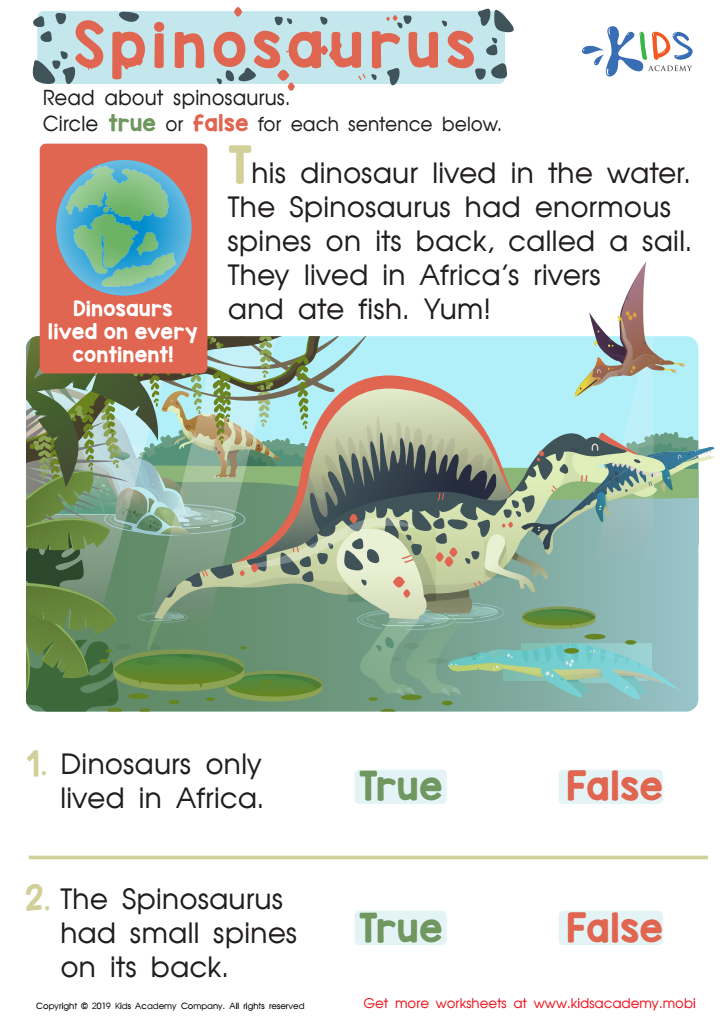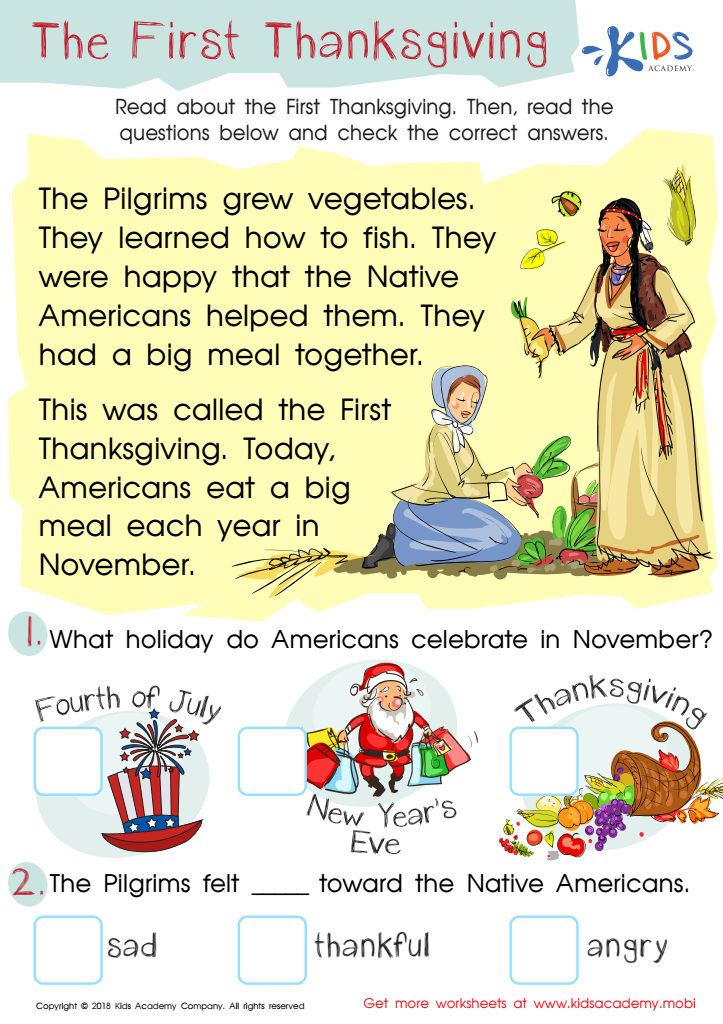Reading Non-Fiction Worksheets Activities With Answers for Ages 8-9
2 filtered results
-
From - To


Spinosaurus Assessment Worksheet


Assessment: First Thanksgiving Worksheet
Reading non-fiction worksheets activities with answers provide an invaluable resource for both educators and students aiming to enhance comprehension and critical thinking skills. These carefully structured activities are designed to navigate the complexities of non-fiction texts, making them an essential tool in the educational toolkit.
Firstly, reading non-fiction worksheets activities with answers enable students to practice identifying the main idea, supporting details, and the author's purpose in a structured environment. This is crucial because non-fiction texts, ranging from news articles to scientific papers, play a significant role in our daily lives. Developing the ability to dissect these texts for key information helps students become more informed individuals.
Secondly, these worksheets offer a clear framework for understanding complex texts. By breaking down the text into manageable sections, students can focus on one aspect at a time, such as vocabulary, text structure, or argument analysis. This step-by-step approach demystifies dense or challenging content, making learning more accessible and less intimidating.
Moreover, the inclusion of answers in these activities provides immediate feedback, a critical component of the learning process. Students can independently check their understanding and clarify misconceptions, fostering a sense of self-reliance and confidence in their reading abilities.
Additionally, reading non-fiction worksheets activities with answers encourage critical thinking and analytical skills. Students learn to evaluate arguments, assess evidence, and draw conclusions based on factual information. These skills are not only fundamental for academic success but are also invaluable in navigating the vast amounts of information encountered daily in our digital age.
In conclusion, reading non-fiction worksheets activities with answers are a powerful educational tool. They cultivate essential skills such as comprehension, analysis, and critical thinking, while also preparing students to engage with the world around them in a thoughtful and informed manner.
 Assign to My Students
Assign to My Students
















